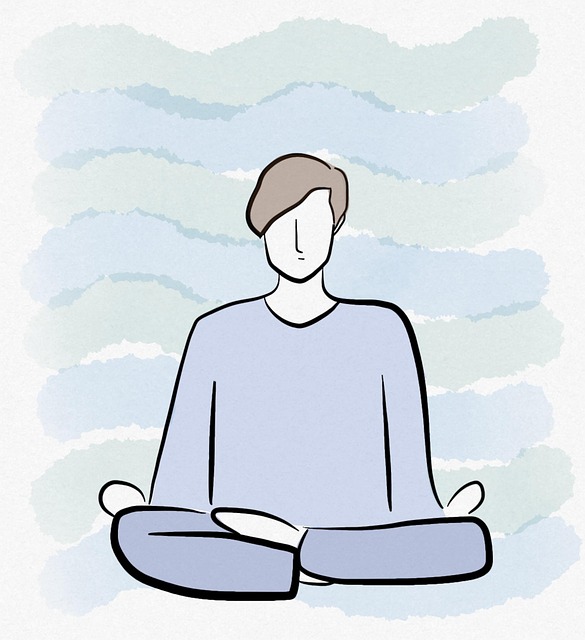Centennial Phobias Therapy (CPT) is an innovative approach combining crisis intervention, cultural competency, and personalized support to break negative thought cycles rooted in past experiences. By cultivating compassion, reframing thoughts, and building resilience, CPT empowers individuals to overcome anxiety, depression, and phobias, enhancing mental wellness and fostering a positive mindset. Integration of CPT practices with Mental Health Policy Analysis and Advocacy aims to provide holistic anxiety relief within communities, ultimately transforming lives and improving overall well-being.
Positive thinking is a powerful tool that can transform mental health and overall well-being. This article explores the impact of cultivating a positive mindset and provides practical strategies, including the application of Centennial Phobias Therapy, to overcome negative thought patterns. We’ll guide you through understanding these concepts, offering exercises to enhance positivity, and sharing tips for integrating these practices into your daily routine for lasting benefits.
- Understanding Positive Thinking and its Impact on Mental Health
- Identifying and Overcoming Negative Thought Patterns
- The Role of Centennial Phobias Therapy in Reframing Perspective
- Practical Exercises to Cultivate a Positive Mindset
- Integrating Positive Thinking into Daily Routine for Long-Lasting Benefits
Understanding Positive Thinking and its Impact on Mental Health

Positive thinking, at its core, is a powerful tool for cultivating emotional regulation and fostering resilience in the face of life’s challenges. It involves shifting one’s focus from negative thoughts and beliefs to more positive and realistic ones, which can significantly impact overall mental health and well-being. Research suggests that this practice may even have profound effects on long-standing issues like anxiety disorders and depression, offering a promising approach alongside traditional Centennial Phobias Therapy methods.
By integrating compassion cultivation practices into daily routines, individuals can enhance their ability to cope with stress and adversity. This shift in perspective encourages people to embrace self-compassion, fostering a supportive inner dialogue that was once dominated by critical or negative thoughts. The impact extends beyond the individual, as mental health policy analysis and advocacy can benefit from these findings, potentially shaping more inclusive and effective support systems for those struggling with various psychological conditions.
Identifying and Overcoming Negative Thought Patterns

Negative thought patterns can be deeply ingrained, often stemming from past experiences and shaping our perceptions in ways that hinder growth and happiness. Centennial phobias therapy offers a powerful tool to identify and challenge these negative thought loops. Through structured techniques and exercises, individuals learn to recognize triggers and replace self-limiting beliefs with more positive and realistic ones. This process involves introspection, often facilitated by mental wellness podcast series production, where one gains deeper insights into their thoughts and emotions.
Coping skills development plays a crucial role in overcoming negative thought patterns. By acquiring effective coping mechanisms, individuals can navigate challenging situations without resorting to unproductive or harmful thinking. Trauma support services also complement this process, providing safe spaces for processing past traumas that may contribute to ongoing negative thought cycles. Ultimately, cultivating positive thinking involves a holistic approach that integrates various therapeutic methods and supports mental wellness on a deeper level.
The Role of Centennial Phobias Therapy in Reframing Perspective

Centennial Phobias Therapy plays a pivotal role in reframing perspectives and fostering positive thinking exercises. This therapeutic approach delves into deep-rooted fears and phobias, helping individuals challenge and reshape their negative thought patterns. By addressing these hidden anxieties, therapy enables clients to develop coping skills and build resilience, which are essential for navigating life’s challenges.
The process involves a combination of crisis intervention guidance and healthcare provider cultural competency training, ensuring that each client receives personalized support. Through this, individuals learn to identify and reframe their perspectives, moving from a state of fear and anxiety towards a more positive and adaptive mindset. As a result, Centennial Phobias Therapy not only aids in managing existing phobias but also equips people with the tools to cultivate a more optimistic outlook, enhancing their overall well-being and quality of life.
Practical Exercises to Cultivate a Positive Mindset

Cultivating a positive mindset is a powerful tool for enhancing overall well-being. Practical exercises play a pivotal role in this process, offering individuals effective ways to manage their thoughts and emotions. One such exercise is Centennial Phobias Therapy, which encourages individuals to challenge negative thought patterns by reframing them into more positive and realistic perspectives. This technique can significantly reduce anxiety levels and improve mental health outcomes.
Additionally, communication strategies are invaluable in fostering positivity. Open and honest dialogue allows individuals to express their feelings and thoughts, building stronger connections and promoting a sense of belonging. Incorporating these practices alongside Mental Health Policy Analysis and Advocacy ensures that positive thinking becomes an integral part of a holistic approach to mental health care. This not only benefits the individual but also contributes to broader Anxiety Relief initiatives within communities.
Integrating Positive Thinking into Daily Routine for Long-Lasting Benefits

Incorporating positive thinking into your daily routine is a powerful step towards enhancing mental health and overall well-being. It involves a conscious shift in perspective, encouraging individuals to focus on the bright side of life, even in challenging situations. This practice can seem daunting at first, but with dedication and the right tools, it becomes an effortless habit. Centennial Phobias Therapy, for instance, often leverages positive thinking exercises as a core component of its programs, aiming to design mental health education that empowers individuals to take control of their emotional regulation.
Regular self-awareness exercises play a pivotal role in this process. By dedicating a few minutes each day to reflect on and appreciate the positives around them, individuals can gradually retrain their minds. This simple yet effective practice fosters emotional resilience, enabling people to navigate life’s ups and downs with more optimism and calm. Over time, such consistent self-awareness exercises can transform one’s outlook, leading to lasting improvements in mental health and a more fulfilling life.
Implementing positive thinking exercises, such as reframing perspectives with Centennial Phobias Therapy, can significantly enhance mental health. By identifying and overcoming negative thought patterns, individuals can cultivate a more optimistic mindset. Integrating these practices into daily routines ensures long-lasting benefits, fostering resilience and overall well-being. Remember, a positive perspective is a powerful tool for navigating life’s challenges.













